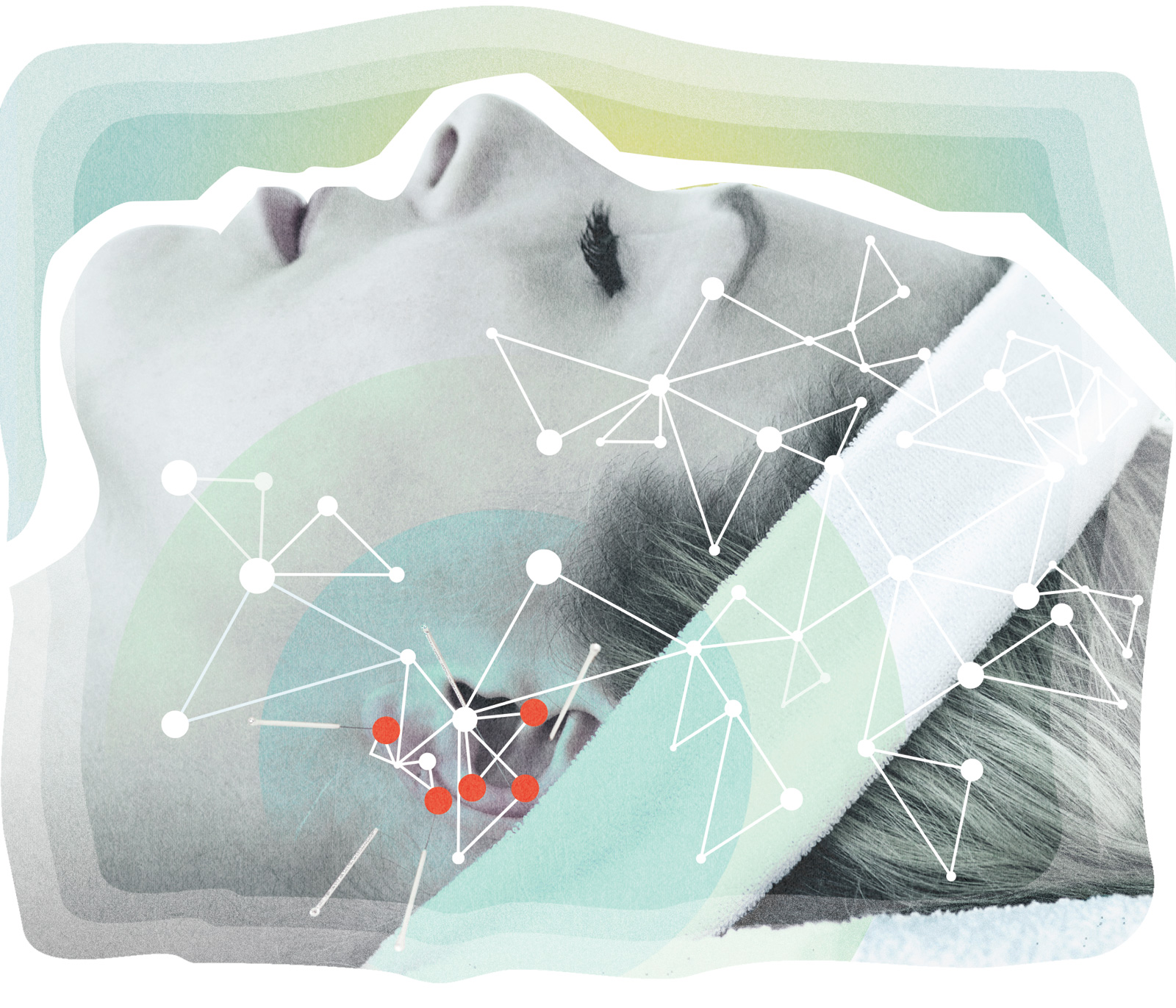The Local newsletter is your free, daily guide to life in Colorado. For locals, by locals.
When the Cold Springs Fire began to torch hundreds of acres near Nederland this past July, one of the medical teams that arrived on the scene didn’t come armed with bandages or painkillers. Instead, its members carried needles.
This was the Colorado Acupuncture Medical Reserve Corps, the first statewide, federally funded team of volunteer health professionals dedicated solely to acupuncture. Since January 2014, the group has helped first responders and survivors handle the trauma associated with fires, floods, and shootings through a free five-needle ear treatment that’s designed to coax the nervous system out of flight-or-fight mode. Although the corps has received praise from many grateful patients over the years, all of the feedback has been anecdotal—until this month, when the University of Colorado Boulder releases a study that analyzes whether CAMRC’s technique actually reduces stress.
The value of acupuncture as a tool in extreme situations gained wider recognition during the aftermath of 9/11. Lafayette acupuncturist Randi Savage knew of fellow practitioners who were using the five-needle treatment to help New Yorkers cope with the horrific event. When a spate of wildfires sprang up in Colorado in 2012, Savage figured she and other local acupuncturists could put their expertise to use in the same way. The group helped survivors and first responders through other local disasters, too, including the Aurora theater shooting later that year and the Front Range floods in 2013. To secure funding, Savage registered the organization as a medical reserve corps with the Department of Health and Human Services. Three and a half years later, CAMRC has grown to more than 80 volunteers.
Some of the acupuncturists have also joined forces with national and international nonprofits to provide support beyond the Centennial State’s borders, traveling to Nepal after the devastating earthquake there two years ago and Orlando following the Pulse nightclub shooting this past June. But the acupuncturists’ focus remains on Colorado. They’ve returned to Nederland every few weeks since the Cold Springs Fire to try to help residents sleep. “Getting acupuncture treatments not only helped calm my nervous system but also helped me become aware of how triggered I was on a daily basis,” says Laurelyn Sayah, a firefighter who helped battle the blaze.
To test whether their treatments have been effective, some Nederland firefighters—along with police officers and civilians from Brighton, Northglenn, and Boulder—participated in the CU study. They were among a broad cross-section of people suffering from various degrees of stress (including no anxiety at all) who received one, two, or three treatments from CAMRC acupuncturists over a six-week period. Participants took a survey measuring parameters such as their moods and perceived levels of stress, both before and 24 to 48 hours after each acupuncture session. At press time, researchers were still analyzing the data. But with wildfire season already heating up, the corps expects—regardless of the study’s outcome—to be more in demand than ever.









